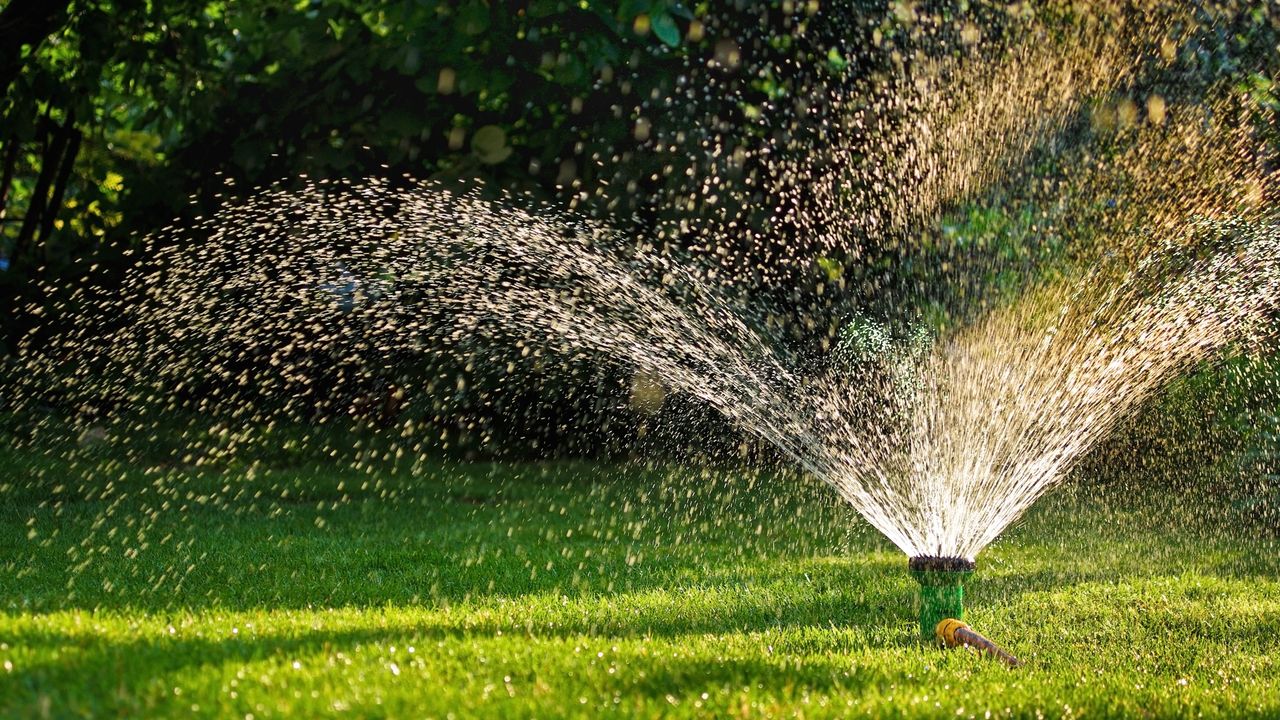Lifestyle
Ensure a Lush Lawn: Pre-Vacation Tips for Homeowners

As summer approaches, many homeowners are gearing up for vacations, whether they are traveling afar or enjoying a staycation. However, before leaving, it is essential to take steps to protect your lawn from potential damage. Experts emphasize that simple preparations can help ensure a healthy yard upon return, even during periods of extreme heat.
Trim the Grass Before You Go
One of the most effective ways to maintain a healthy lawn is through timely mowing. According to lawn care expert Doug O’Connor from DeerFencing.com, trimming your grass about one day before departure can significantly reduce stress on the lawn.
“Cut your grass but avoid going too short,” advises O’Connor. “Removing just the top third of the grass blade is ideal. This practice minimizes growth and protects against potential sun damage.” A well-timed trim also helps prevent weeds and pests from taking hold in your yard.
Implement Smart Watering Solutions
With varying weather conditions, maintaining an appropriate watering schedule is crucial. Smart sprinkler systems have emerged as an innovative solution for homeowners. These devices can be programmed via an app, enabling users to customize watering schedules according to their needs.
“The latest smart sprinklers can check local weather forecasts and adjust accordingly,” O’Connor explains. Such technology prevents overwatering during rainstorms, which can be just as detrimental as underwatering. For those who prefer a more traditional approach, enlisting a neighbor to help with watering is a viable option. Alternatively, a simple automatic sprinkler system with a timer can provide peace of mind for frequent travelers.
Among the popular options is the Rachio smart sprinkler controller, which allows users to automate their watering routines and adjust settings based on real-time weather conditions. This ensures that lawns remain healthy even in the owner’s absence.
Fertilize Wisely
Before heading off on vacation, applying a slow-release fertilizer can enhance your lawn’s vitality. O’Connor recommends doing this approximately one week before leaving. “A slow-release fertilizer provides essential nutrients that are gradually released over time, supporting steady growth without the risk of excessive mowing requirements,” he states.
Homeowners are advised to avoid quick-release fertilizers right before a vacation, as these can lead to rapid growth, which is not ideal during an absence. Instead, selecting a fertilizer based on the specific needs of the turf can be beneficial. For example, nitrogen promotes lush growth, phosphorus enhances root development, and potassium contributes to overall plant health and resilience.
By following these straightforward practices, homeowners can ensure their lawns remain healthy and vibrant while they enjoy their time away. Taking care of these tasks not only saves money on lawn repairs but also provides peace of mind during vacations.
In summary, with proper preparation, homeowners can return to a thriving yard, ready to enjoy the beauty of their outdoor spaces.
-

 Lifestyle3 months ago
Lifestyle3 months agoLibraries Challenge Rising E-Book Costs Amid Growing Demand
-

 Sports3 months ago
Sports3 months agoTyreek Hill Responds to Tua Tagovailoa’s Comments on Team Dynamics
-

 Sports3 months ago
Sports3 months agoLiverpool Secures Agreement to Sign Young Striker Will Wright
-

 Lifestyle3 months ago
Lifestyle3 months agoSave Your Split Tomatoes: Expert Tips for Gardeners
-

 Lifestyle3 months ago
Lifestyle3 months agoPrincess Beatrice’s Daughter Athena Joins Siblings at London Parade
-

 World3 months ago
World3 months agoWinter Storms Lash New South Wales with Snow, Flood Risks
-

 Science3 months ago
Science3 months agoTrump Administration Moves to Repeal Key Climate Regulation
-

 Science2 months ago
Science2 months agoSan Francisco Hosts Unique Contest to Identify “Performative Males”
-

 Business3 months ago
Business3 months agoSoFi Technologies Shares Slip 2% Following Insider Stock Sale
-

 Science3 months ago
Science3 months agoNew Tool Reveals Link Between Horse Coat Condition and Parasites
-

 Sports3 months ago
Sports3 months agoElon Musk Sculpture Travels From Utah to Yosemite National Park
-

 Science3 months ago
Science3 months agoNew Study Confirms Humans Transported Stonehenge Bluestones









